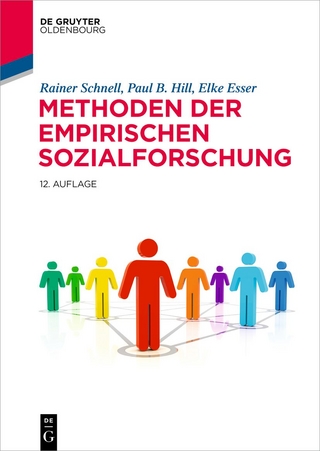
Fertility and Social Interaction
Oxford University Press (Verlag)
978-0-19-924459-1 (ISBN)
Considerable controversy exists among demographers, economists, and sociologists over the causes of fertility change in developing and developed countries. The neoclassical economic approach to fertility is embraced by its supporters because it facilitates the application of sophisticated consumer and household production theory to one of the most private and intimate questions: a couple's reproductive behavior. Despite the theoretical appeal of the economic approach, it has been eschewed by many critics because of its lack of social and institutional context, its neglect of cultural factors, and its requirement of 'rationality'. The integration of social interaction with economic fertility models in this book emerges as a powerful tool to overcome many of these criticisms. First, the analysis provides a formal integration of economic, sociological, and other approaches to fertility, and shows that there is a useful and promising agenda at the intersection of these schools. The second and more important goal is to sharpen the analytic lens with which theorists from different schools investigate fertility. For economists the work shows the advantages of moving beyond individual decision-making and embedding fertility decisions in a 'local environment' with interpersonal information flows, 'atmospheric' or social externalities, norms, and customs. For sociologists the work shows that theorizing about interactions within social networks can be more sophisticated. The implications of social networks depend substantially on the specific contexts and stages of the demographic transition, and these differences can be used to empirically distinguish between social learning and social influence. Thirdly, the findings have important implications for population policy. The analyses in this book indicate when family planning is likely to diffuse and lead to rapid adoption of birth control, and they derive conditions where Pareto-improving policy measures are likely to exist.
Hans-Peter Kohler received his M.A. in Demography (1994) and Ph.D. in Economics (1997) from the University of California at Berkeley. He is currently head of the research group on Social Dynamics and Fertility at the Max Planck Institute for Demographic Research in Rostock and part-time professor at the University of Southern Denmark in Odense. His primary research interest is processes of social interactions and their relevance for fertility and AIDS-related behaviors in developing and developed countries. Hans-Peter Kohler is also engaged in research on lowest-low fertility levels, the biodemography of fertility, and demographic methods. Recent publications have appeared in Demography, Journal of Development Economics, Journal of Population Economics, Population Studies, Demographic Research, Behavior Genetics, and Population and Development Review.
1. Fertility Behaviour and Demographic Change: Economic and Other Perspectives ; 2. Learning in Social Networks and Contraceptive Change ; 3. The Density of Social Networks and Fertility Decisions: Evidence from S. Nyanza District, Kenya ; 4. From Individual Behaviour to Aggregate Fertility Dynamics ; 5. Fertility Decline as a Coordination Problem ; 6. Social Interactions and Fluctuations in Birth Rates ; 7. Summary and Conclusions
| Erscheint lt. Verlag | 1.1.2002 |
|---|---|
| Zusatzinfo | numerous figures and tables |
| Verlagsort | Oxford |
| Sprache | englisch |
| Maße | 146 x 225 mm |
| Gewicht | 386 g |
| Themenwelt | Sozialwissenschaften ► Soziologie ► Empirische Sozialforschung |
| Wirtschaft ► Volkswirtschaftslehre ► Mikroökonomie | |
| ISBN-10 | 0-19-924459-6 / 0199244596 |
| ISBN-13 | 978-0-19-924459-1 / 9780199244591 |
| Zustand | Neuware |
| Haben Sie eine Frage zum Produkt? |
aus dem Bereich


